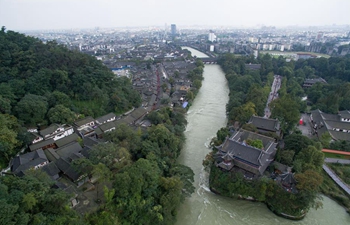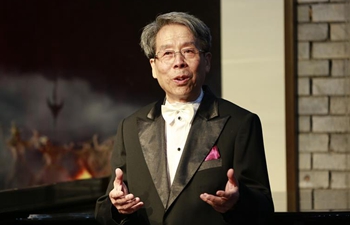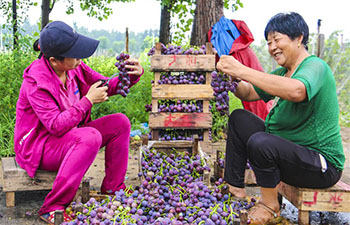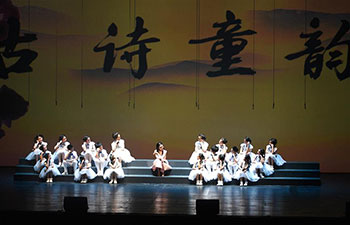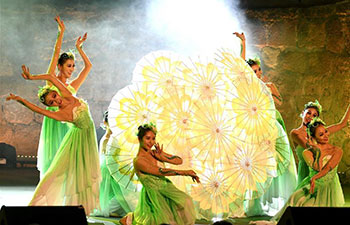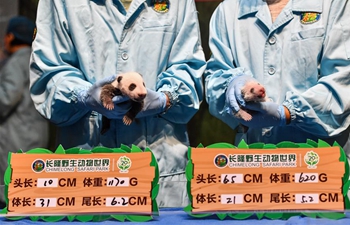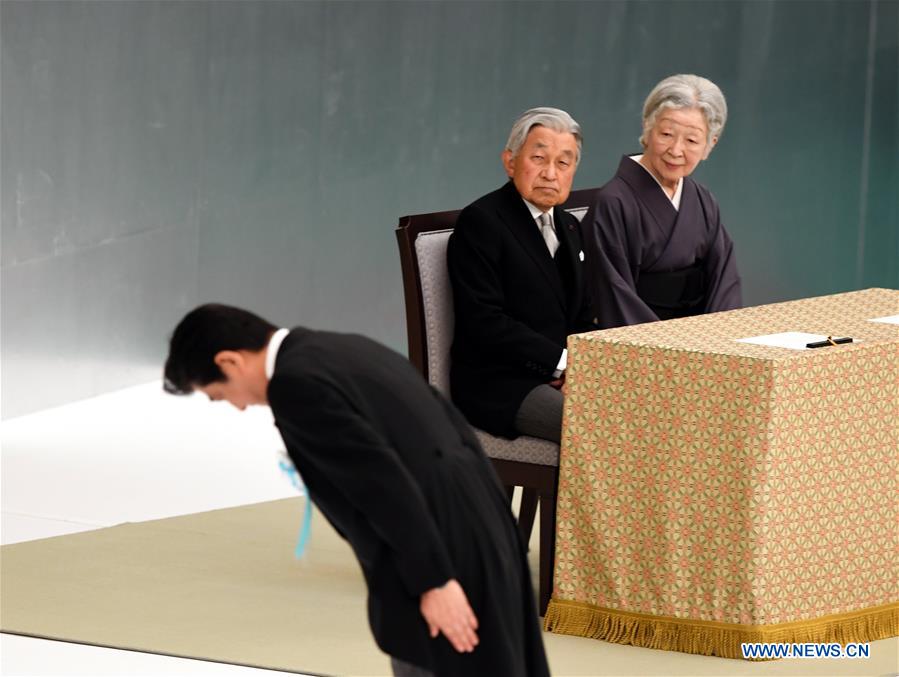
Japanese Emperor Akihito (2nd R), Empress Michiko (1st R) and Prime Minister Shinzo Abe (L) attend the ceremony marking the 73rd anniversary of Japan's surrender in World War II in Tokyo, Japan, Aug. 15, 2018. Japan on Wednesday observed the 73rd anniversary of its surrender in World War II, with Emperor Akihito reiterating his "deep remorse" over the country's wartime acts. (Xinhua/Ma Ping)
TOKYO, Aug. 15 (Xinhua) -- Japan on Wednesday observed the 73rd anniversary of its surrender in World War II, with Emperor Akihito reiterating his "deep remorse" over the country's wartime acts.
A number of events were held nationwide throughout the day to reflect on the annual occasion and to pray for peace.
At the Nippon Budokan hall in Tokyo, more than 5,000 participants including relatives of those who lost their lives in the war gathered to listen to addresses by both Emperor Akihito, attending for the last time in position as Emperor as he will abdicate next April, and Prime Minister Shinzo Abe.
Abe in his address vowed to sincerely deal with the causes of conflict and work to create a world where everyone can live in peace.
"Never again will we repeat the devastation of war. We will humbly face history. And whatever course the world may take, we will firmly keep this pledge," the prime minister said, avoiding the use of the word "remorse" as has been the case in his annual addresses since taking office in 2012.
Predecessors of Abe, most notably former Prime Minister Tomiichi Murayama customarily made reference to the government's and the nation's sincere remorse felt for Japan's wartime atrocities before and during its brutal occupation of many parts of Asia.
Murayama famously first used the word "remorse" at the annual memorial ceremony in 1994.
Emperor Akihito, in his final address since his ascension in 1989, spoke, as always, with a conciliatory tone and of the remorse he felt for the war and how the ravages of war should never be repeated.
"Looking back on the long period of post-war peace, reflecting on our past and bearing in mind the feelings of deep remorse, I earnestly hope that the ravages of war will never be repeated," Akihito, whose duties have taken him to many countries that were brutalized by Japan to try and heal the wounds and pray for the lives lost.
According to the Ministry of Health, Labor and Welfare, about 80 percent of those who attended the ceremony were 70 years old or older.
Japan now face the challenge of educating the younger generations here about the realities of war past and present, including Japan's aggression during World War II.
Japan must strive to create a nation that fully understands that only by squarely facing its history can it truly move forward in a peaceful manner and with the acceptance and trust of its regional neighbors who suffered so horrifically at the hands of the Imperial Japanese Army.
